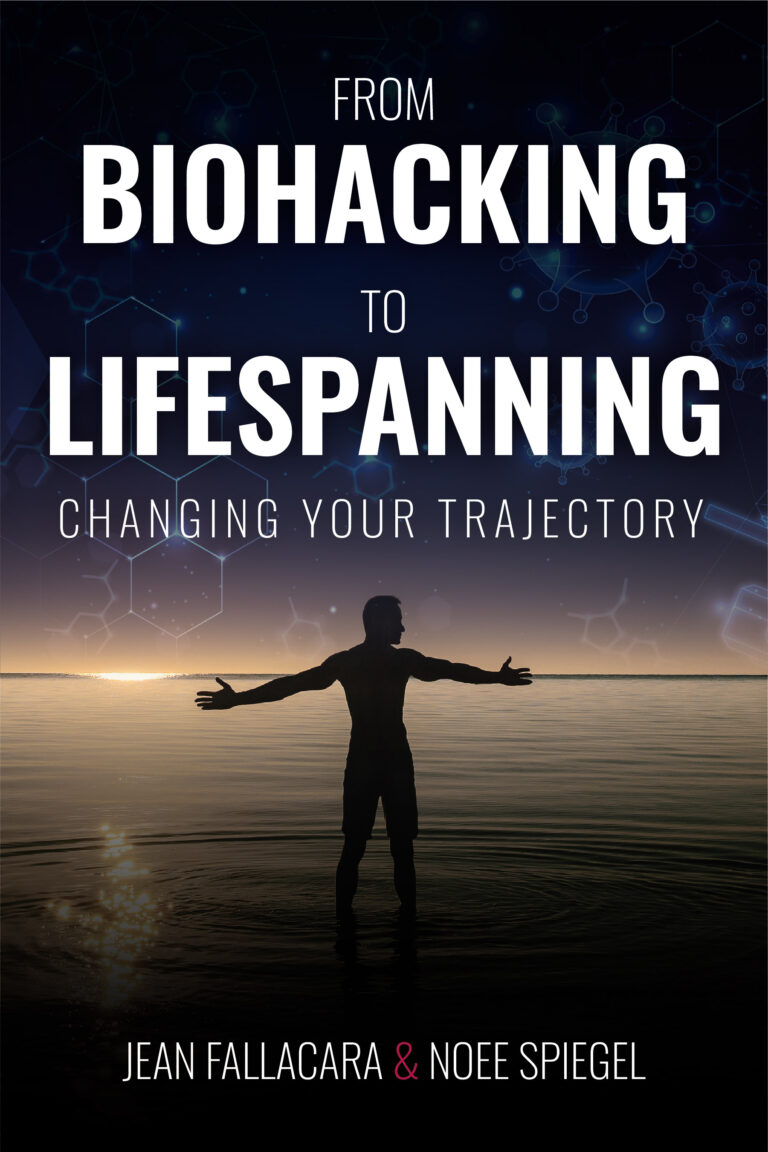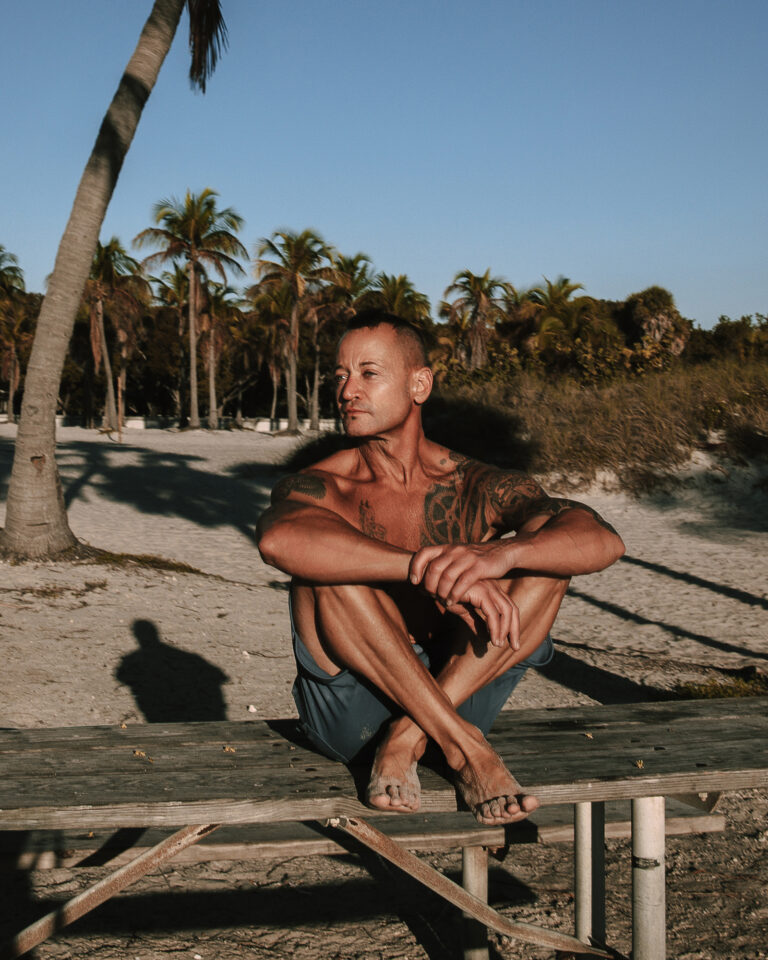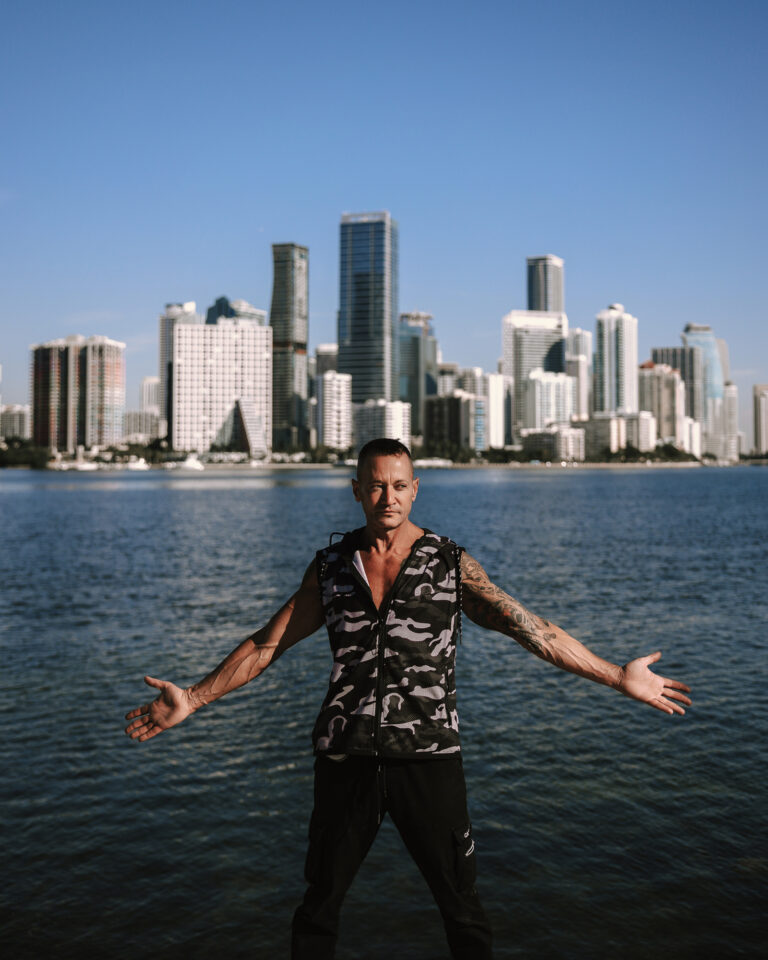nEUROSCIENCE CALISTHENICS
Hijack Your Body Clock
Jean Fallacara is the author of the award winning book Neuroscience Calisthenics: Hijack your Body Clock, his guide to training like a Cyborg and redefining your mental and physical capabilities.
Making small but incremental adjustments that then impact how you look, think, perform, and feel. Learn how you can influence your body’s biology to unleash your best version combining Neuroscience, Biohacks and Fitness tips.
Every Decision you make, conscioulsy or subconsciously, shift your biology toward cell aging.
FROM BIOHACKING TO LIFESPANNING
Changing your trajectory
True wellness is inseparably tied to a fulfilling life. While this may seem simple, the realization is profound. Longevity is more than just a physical pursuit. It is a conscious and intentional act of balancing science, spirituality, and emotional wellness.
This book, introduces the concept of “Lifespanning,” a philosophy that blends cutting-edge science with timeless wisdom. We are all biohackers from the moment we take our first breath, navigating the complex systems of our bodies, often without realizing it.


Why Do Some People Age Like Fine Wine While Others Don’t?
It’s About Biological Age vs. Chronological Age!
Ever wondered why some people look remarkably youthful while others show the signs of aging more prominently? It’s not just about the number of candles on your birthday cake; it’s about the fascinating interplay between your biological and chronological age.
And guess what?
My biological age came out to be 28!
🔬 Biological Age: The Game-Changer
Recently, I embarked on an exciting journey to gauge my biological age using a cutting-edge test called GlycanAge. This test evaluates glycans, the sugar molecules that modify proteins in our bodies. These glycans are responsive to lifestyle choices and mirror the inflammation level in our immune system – essentially painting a picture of our biological age.
⏳ Chronological Age: The Inevitable Counter
Chronological age is straightforward – it’s the number of years you’ve lived on this beautiful planet, the age mentioned in your passport. It’s an unchangeable factor, a constant ticking of time.
Lifestyle’s Impact on Biological Age
Your biological age is influenced by numerous factors – genetics, lifestyle choices, and environmental conditions. While we can’t control time, we can definitely influence our biological age. Simple yet effective steps like regular walks, meditation, balanced diet, stress management, workouts, and good sleep can significantly improve your biological age.
My Personal Journey: Rewinding the Clock
It took me five years of dedicated effort in neuroscience and calisthenics to turn back my body clock by 28 years. The grind was worth every second. Now, consider this – your daily choices shape your biological age. It’s about those small, consistent steps, each day.

About the Author
Jean Fallacara is a serial entrepreneur, an athlete, an author, and the ultimate Cyborg who cracked the code and found the keys to unlocking superman-level performance through Neuroscience. His book is aimed at sharing this knowledge with individuals who are seeking the secrets for enhanced physical and intellectual performance. Using his findings, you will be able to learn how to train like a Cyborg.

We all aspire to live a long and healthy life and know that staying active is critical to achieving this goal.
Usually, we think that, we physically peak at around the age of 20. That is what most physical trainers, athletes but mainly the media are going to tell you and they are not wrong. It is just what they are used to seeing. Most gymnasts or Olympic athletes that we see usually reach their prime in their late teens or early twenties.
Taking Usain Bolt as an example; he had been earning gold medals in several world championships ever since he was 15 but it was in the 2008 Beijing Olympics that he lit up the world stage when he broke the world record for the 100-meter sprint. Since then he has progressed on to break his own record and earn consecutive gold medals in the 2012 and 2016 Olympics, up until he was 30, after which he retired.
Most people do not attempt to do demanding sports in their late 20s or 30s and many avoid extensive physical exercise activities past their late 40s. Instead, priorities change with age, adults opt for sports such as golf, tennis, table tennis, or cycling. Of course, the main reason is due to the increased risk of injury. Pre-existing injury or the fear of getting injured can influence the choice of sport.
These adults want to keep on doing active sports, but they assume that they cannot because of their biological human clock.
People think that their bodies have attained their maximum potential during their twenties and after that, they can never reach the same level.
I am about to tell you that it is all false.
Everyone wants to stay and feel young. They all wish they could do any sport at any age, without the worry of damaging their body but unfortunately, not everyone is able to achieve this desire. Well, what if I tell you that it is all possible – that it is all really true. Everyone, even you, can do it!
Training the mind is as important in staying active as the body. To be able to do something, you first must believe that you can. Only then are you able to act upon it. There is a quote by Shakespeare that goes,
“Hamlet: there is nothing either good or bad but thinking makes it so.”
Our mind is very powerful; it can either become your greatest ally or your worst enemy.
Training and conditioning of the mind are as important as training the body.
